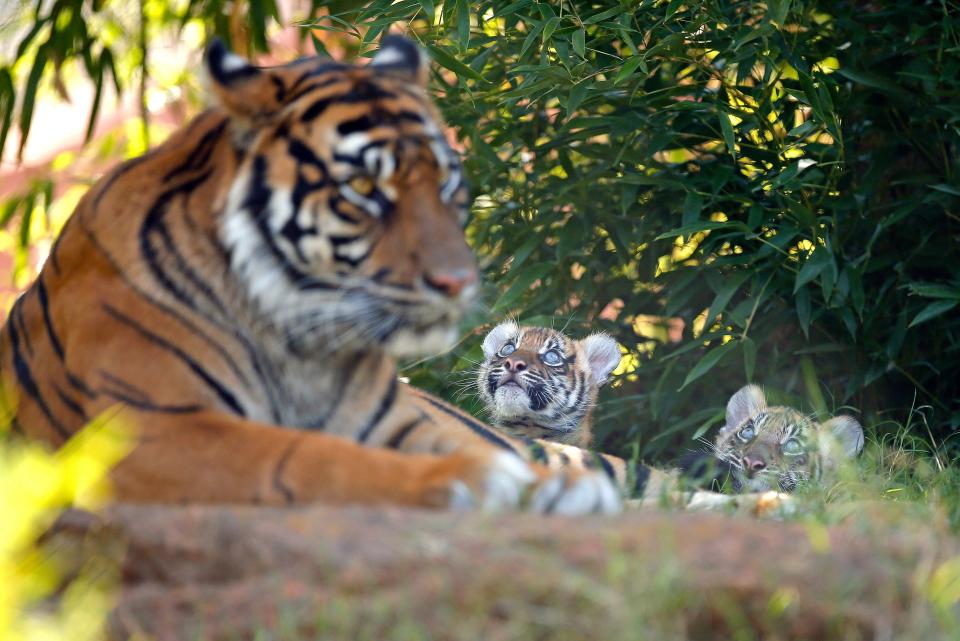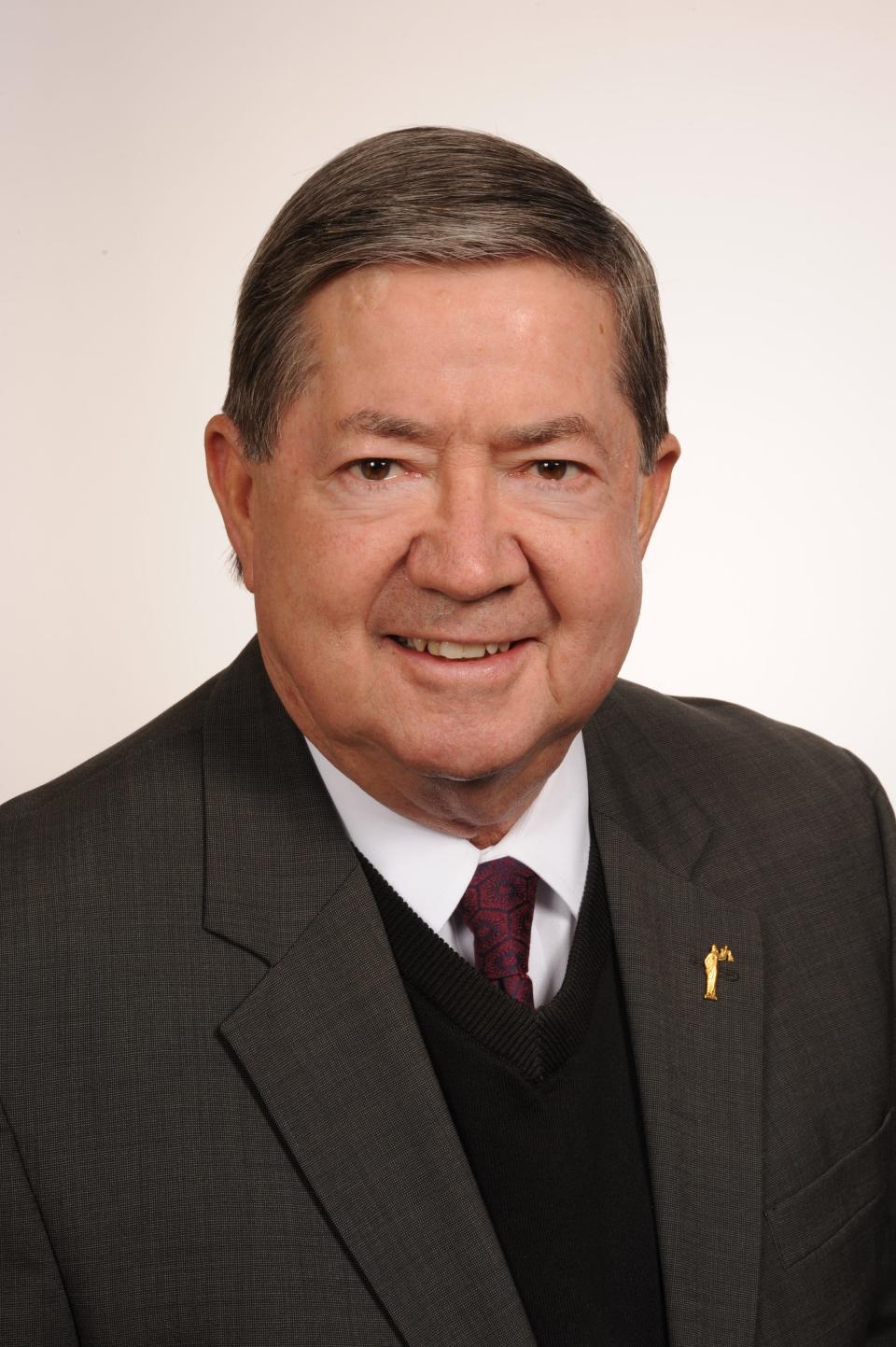Guest: We can thank 'Tiger King' for displaying Oklahoma's bad laws on big cats
- Oops!Something went wrong.Please try again later.
As a proud Oklahoman who has served in our state Legislature, as district attorney for Muskogee County and statewide as your attorney general for four full terms, I attest to you that it’s a sound idea for Oklahoma lawmakers to play a role in passing national legislation to curb the presence of privately owned big cats, mainly lions and tigers, in our communities.
The Big Cat Public Safety Act would restrict unlicensed people from breeding tigers and lions for the pet trade and ban commercial petting of these animals at roadside zoos. Accredited zoos and other USDA-licensed facilities would be able to hold onto the cats if treated properly. Our zoos in Oklahoma City and Tulsa support this legislation.

When your housecat bites, it hurts and may require some cleaning alcohol and a Band-Aid. When a tiger bites, you may have the blood drain out of your body or lose a limb. In fact, a worker at Joe Schreibvogel’s menagerie in Garvin County did have an arm so mangled that it later required partial amputation. Joe Exotic, also known as Joseph Allen Maldonado-Passage, was an embarrassment to our state, with his antics and dangerous conduct put on display to the world on “Tiger King.” He is now incarcerated and his facility shuttered, with his 100-plus cats taken in by sanctuaries specializing in large mammals (at an enormous, unanticipated expense to these private nonprofit corporations).
We can thank him, in a sort of back-handed way, for putting on display our deficient laws in the state when it comes to private ownership of dangerous exotic wildlife and enabling any carnival barker to house the animals and commercialize their use.
He shot and killed several tigers, violating the federal Endangered Species Act, and that’s one reason he’s in federal prison. But it could have been much worse for the rest of us. Imagine if a tornado swept across the former GW Zoo in Wynnewood, a high-risk area for these destructive weather events, and mangled the enclosures, sending hundreds of tigers onto Garvin County streets and playgrounds. Even as a U.S. military veteran, and very able with firearms, I would not want to have to contend with a lightning-fast, free-roaming tiger.
Our first responders don’t want to have to confront these animals in a crisis. That’s why the National Sheriffs' Association and the Fraternal Order of Police support the Big Cat Public Safety Act, which builds on an earlier law, the Captive Wildlife Safety Act, which Congress passed unanimously a generation ago.
Today’s bill has cleared the U.S. House of Representatives, and now just needs to pass a last hurdle in the U.S. Senate. Yet as always, exotic-animal owners throw up straw-man arguments to impede progress, including the argument that the measure will preempt state law.
As the former top law enforcement person in our state, I assure you this is not true. The Big Cat Public Safety Act amends today’s Lacey Act, which has a provision providing for the exercise of state authority on wildlife protection. “Nothing in this Act shall be construed to prevent the several States or Indian tribes from making or enforcing laws or regulations not inconsistent with the provisions of this Act,” reads the law.
A good parallel is our state and federal laws related to dogfighting and cockfighting. We have a strong Oklahoma law to curb animal fighting, and so does the federal government. Federal law enforcement authorities enforce the national law, and sheriffs and police enforce the state law. They can team up on cases that require their cooperation. Just as with big cats, state and federal law are complementary, not in conflict.
I should know, as I successfully defended our state’s anti-cockfighting ballot initiative, which went into effect in 2003, while Congress also banned any interstate or foreign transport of fighting animals at precisely the same time. Lawmakers subsequently strengthened the federal animal fighting law four times, with Congress establishing a national ban in 2019, leaving not an acre of American soil a refuge for cockfighting. It was a win-win for both Oklahoma and the rest of the United States.
If there is any state that felt the sting of the reckless behavior of private individuals with big cats, it’s Oklahoma. We’ve had a string of operators who misused their power over animals and put so many of us and so many animals at risk. The federal government most recently cracked down on Joe Exotic’s successor, Jeff Lowe.
The Congress has wielded a surgeon’s knife in addressing the problem through the Big Cat Public Safety Act. Our state can also do better by fortifying its laws in this domain. To protect these magnificent animals, and to keep our communities safe, it makes sense for key decision-makers to act at both decision-making levels.

Drew Edmondson of Oklahoma City is co-chair of the National Law Enforcement Council of Animal Wellness Action and the Center for a Humane Economy.
This article originally appeared on Oklahoman: Edmondson: Oklahoma needs to fortify laws to help save big cats

